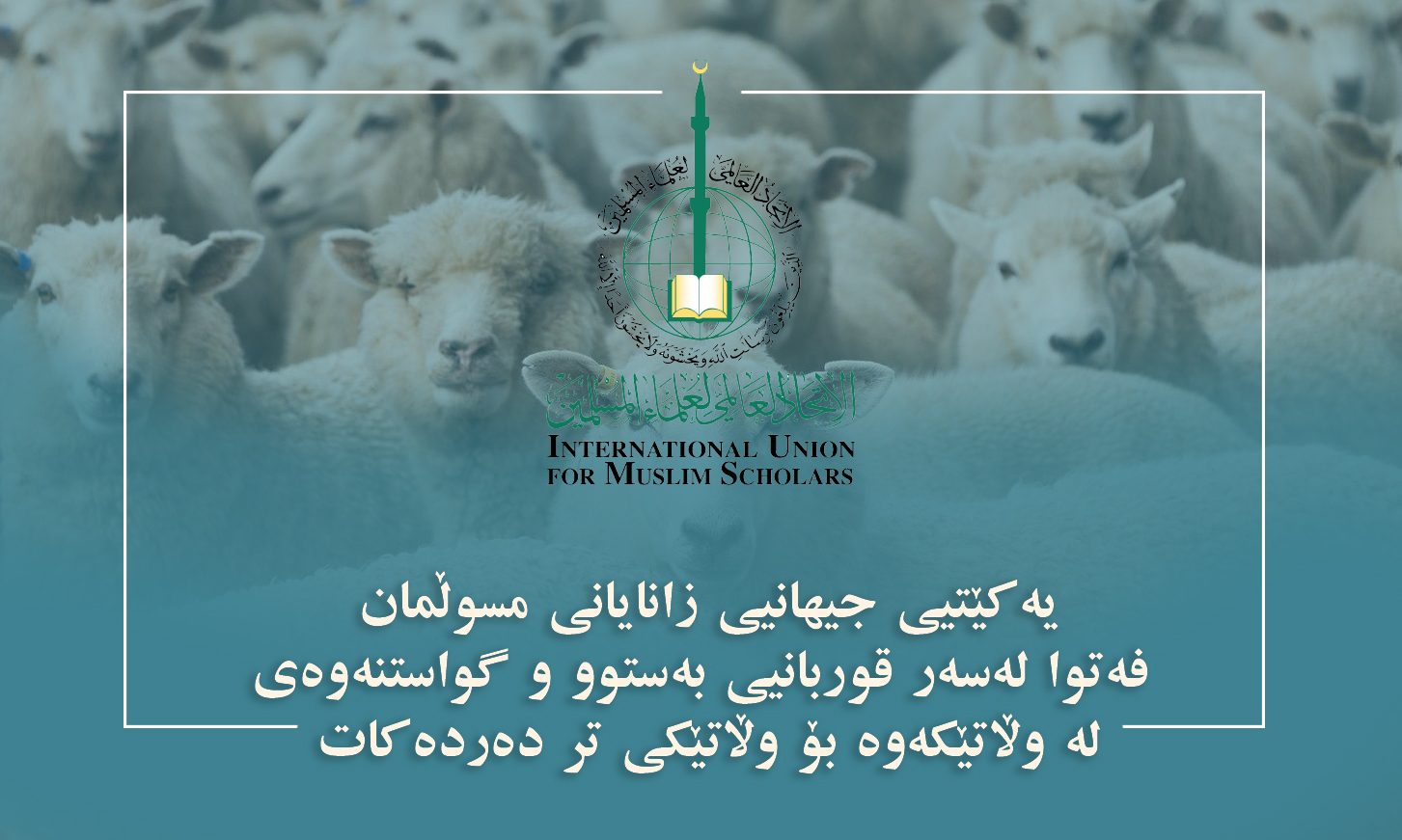Aug 01 2025

Fatwa on Celebrating and Commemorating the Birthday of the Prophet (Peace Be Upon Him)
In the name of Allah, the Most Gracious, the Most Merciful
Commemorating the Birthday of the Prophet ﷺ between Forbidden and Recommended, according to the Fiqh of Balance (Mizan):
By Prof. Dr. Ali Muhiddin al-Qaradaghi
Question:
These days, as we are in the month of Rabi' al-Awwal, questions about commemorating the birthday of the Prophet ﷺ have become numerous. Is this commemoration an absolute innovation (bid'ah), or is it recommended (mustahabb), or is it absolutely permissible? Please answer us according to the Fiqh of Balance (Mizan). May Allah reward you.
Answer:
Praise and thanks be to the Lord of the worlds, and peace and blessings be upon the one who was sent as a mercy to all the worlds, as well as upon his entire family, companions, and all those who follow his guidance until the Day of Resurrection. To proceed...
There are several unchanging principles (mizan) that clarify the Sharia realities:
It is clear that Muslims have only two religious festivals (Eids): Eid al-Fitr, which comes after the completion of the pillar of fasting, and Eid al-Adha, which follows the completion of the final pillar of Islam (Hajj). Both Eids include a prayer (the Eid prayer), takbirat (saying "Allahu Akbar"), and a number of other similar acts of worship. Therefore, by the consensus of scholars, it is not permissible to add any other religious festival, because it is a forbidden innovation (bid'ah) and a danger to our religion itself. However, national occasions and celebrations for championships or for personalities who have played a role in serving Islam and Muslims, or the homeland, are things outside the scope of religious festivals and have no religious rituals, just as they have no special prayers, acts of worship, or slogans. Even if they are called "Eid," there is no issue, because what is important and considered are the intentions and realities, not the words and phrases.
The second principle concerns the gathering of some people and their undertaking of a specific activity, for example, celebrating and commemorating the birthday of the Prophet ﷺ, where they take this opportunity to present some speeches and talks about the Prophet ﷺ, his call (dawah), and similar things. This in itself is viewed as an activity, not a prayer, not a religious festival, Hajj, or circumambulation (tawaf). Rather, it is just a general activity, and—as the scholars of Usul al-Fiqh (Principles of Jurisprudence) say—the legal rulings (ahkam taklifiyyah), or most of them, apply to it as follows:
If the activity results in forbidden innovations, superstitions, impermissible mixing, or other similar forbidden things, then it becomes forbidden due to the forbidden nature of those other things. If it is mixed with disliked (makruh) things, then it becomes a disliked act. This is a general ruling for all activities that become mixed with forbidden or disliked matters; they become forbidden or disliked because of those forbidden or disliked things. This is because it falls under the rule: "Consideration for means and causes is based on their outcomes and consequences." By the consensus of scholars, the means and causes take on the ruling of the goals, intentions, and outcomes.
If there are no forbidden things or other forbidden innovations associated with it, but rather its participants use it as an opportunity to call people to Allah the Almighty, to introduce the Prophet ﷺ, and to support him, then with the help of Allah the Almighty, they will be rewarded. This is because "Actions are but by intentions, and every person will have but that which he intended" (Narrated by Bukhari in his Sahih (1) and Muslim (1907)).
If the participants of this occasion want to make it a religious festival and specify it with a type of salawat (blessings), slogans, and similar things (which some call religious slogans), then it is undoubtedly forbidden and a reprehensible innovation and misguidance.
Our discussion and fatwa are solely on the previous paragraph (2), to which the principle of calling to Allah applies, and this itself encompasses a large area of the means of da'wah:
This issue, since the fourth century of the Hijra, has been a subject of great disagreement among scholars, between (permissibility), which was the majority view, and (prohibition), which was the minority. Each side has had its evidence and has oriented itself towards what it believed to be true.
Without going into the details of this topic and the evidence of each side, I say:
First: According to the Fiqh of Balance (Mizan), the door to specific acts of worship and religious rituals is closed to additions and changes in their form, especially if there is no clear text about them. But the door of customs, traditions, and transactions is open to change. This is because the original principle (asl) of these actions is permissibility, unless a clear, authentic, and sound text has come stating their prohibition.
Second: The majority of scholars have acknowledged the use of analogy in some types of worship, that there is "good innovation" (bid'ah hasanah) which is in harmony with the principles of the Sharia and does not contradict it. For example: when the people gathered to perform twenty rak'ahs [of Tarawih prayer] on every night of Ramadan, and then Umar (may Allah be pleased with him) saw them standing in an orderly fashion behind one imam, he said: "What a good innovation this is."
Similarly, Uthman (may Allah be pleased with him) innovated the second call to prayer (adhan) for Friday.
Abu Shamah in Al-Ba'ith 'ala Inkar al-Bida' wal-Hawadith (page 62) says: "There is a consensus of scholars on the permissibility of performing good innovations, and they are considered recommended (mustahabb)." Then, in defining good innovation, he says: "It is an innovation that is consistent with the laws of the Sharia and does not oppose them, and its performance does not result in any forbidden act."
Third: Means and objectives are different from each other, because the means of worship do not have one specific Sunnah and are not performed in only one way. There are some means in which changes can be made. For example, the means of jihad, or conveying the call (da'wah) with new means.
Fourth: Worship ('ibadah) is a broad and comprehensive concept. It includes all the specific acts of worship and religious slogans that we cannot alter except with clear evidence and text. It also includes all other types of drawing near to Allah, such as jihad and calling to Allah. Indeed, it includes all good deeds whose intention is to please Allah the Almighty, from agriculture to industry, trade, and many other actions.
The Preferred Opinion:
After contemplating the issue of celebrating and commemorating the birthday of the Prophet ﷺ according to the Fiqh of Mizan, it became clear to me that this act falls under the umbrella of calling to Allah and is one of the means of introducing the Prophet ﷺ, his biography, morals, sayings, and actions. It is clear that the original principle in the means of da'wah is permissibility, unless those means are forbidden or lead to something forbidden. The evidence for this is the saying of Allah the Almighty: "Invite to the way of your Lord with wisdom and good instruction, and argue with them in a way that is best" (An-Nahl: 125).
The meaning of wisdom includes all beneficial and effective means that are suitable for the people, time, and places.
The meaning of good instruction includes giving glad tidings, gentle speech, good advice, true stories, and the like, which affect the hearts and souls.
And by arguing, the meaning is dialogue. When it is described as "in a way that is best," it is evidence for the validity and recommendation of the caller's effort to reach the best in terms of speech, action, meaning, and content. This in itself implies renewal, because the verse requires us to change the choice of the "best" according to the time, place, people, and circumstances. What is best for today is not necessarily the best for tomorrow.
Ibn al-Qayyim, in his commentary on this verse, says: "Allah the Almighty (Subhanahu wa Ta'ala) has made the levels of da'wah like the levels of people. The one who is responsive to the call is called with wisdom. The one who has come to Islam but is lagging and heedless is called with good instruction. The stubborn and argumentative person is debated with in the best and most beautiful manner."
Just as the means of jihad are not restricted to the texts that have been revealed about it, but are general and include everything that leads to achieving the desired objective, yet it is bound by the condition that it must not oppose the texts of the Sharia. For example, Allah the Almighty mentioned the preparation of horses [for battle]; today, the preparation of tanks, airplanes, and the like have been added to it. The means of da'wah are the same, from calling to Allah to calling for the love of His Prophet ﷺ and following his program, biography, and Sunnahs.
If we reach this conclusion, then celebrating and commemorating the birthday of the Master ﷺ is a means among the means of da'wah to Allah and of introducing His Prophet ﷺ and his program and morals. Accordingly, it is legitimate and permissible; indeed, a person is rewarded for performing it, with the following conditions:
The intention behind the celebration should be to call to Allah, to love Him and His Prophet ﷺ, to revive his Sunnahs, to follow his Sharia, and to adhere to his program.
The celebration should not result in anything forbidden, such as dancing, impermissible mixing, and some other forbidden actions and sayings.
It should not lead to extravagance, wastefulness, and unnecessary showing off.
If food is served, the poor should also be invited.
Fifth: If these things occur, then the denial and obstruction of some of those callers whose obstruction is greater than their adherence to the definitive prohibitions is not accepted. As one of them said: "Whoever commemorates the birthday of the Prophet ﷺ, his sin is greater than the sin of drinking wine, committing adultery, and killing." As the author of the book Mafhum al-Bid'ah (The Concept of Innovation) has cited on pages 21-22.
This severity and rigidity is an excessive deepening of the religion and leads to the disruption of balances, and then to the creation of takfiri thought and subsequently, suicide bombings.
The final word is that the issue itself is a matter of disagreement. Each side has the right to prefer and champion the opinion it deems best, without infringing upon the rights of the other sides and without sanctifying its own opinion.
According to the Fiqh of Balance (Mizan), we have reached this conclusion. I ask Allah to protect me from error and slipping in belief, creed, word, and deed; and to make us sincere servants of His religion and to forgive our mistakes and sins. "Our Lord, do not impose blame upon us if we have forgotten or erred..." (Al-Baqarah: 286).
Ameen, O Lord of the worlds.
Prof. Dr. Ali Muhiddin al-Qaradaghi









